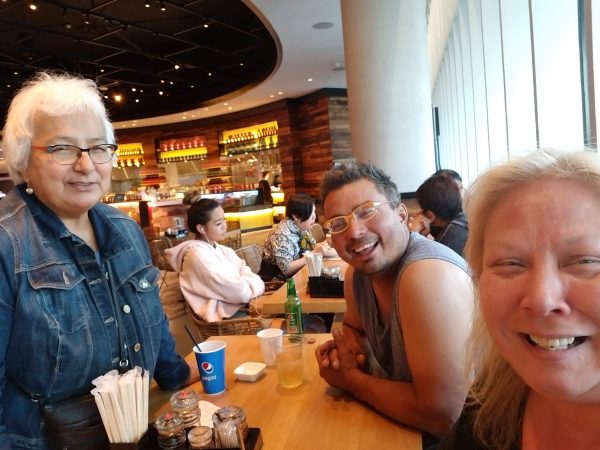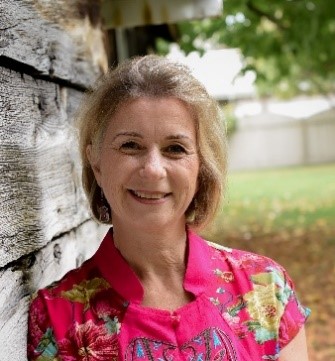Posted
Categories: My Experience
Patient partner Darlene Clayton, from Kispiox, BC, lost her son to an opioid overdose in 2018. In this post, she talks about how an Indigenous approach to wellness could improve treatment for people who use substances.
TRIGGER WARNING
The following post contains content about drug use and fatal overdose that some readers may find disturbing. If you believe that you will find it to be traumatizing, you may choose to prepare yourself emotionally before reading, or decide not to read at all.
Our son, Jess Matthew Clayton, left us Christmas morning, December 25, 2018.
He phoned me around 9:30 pm on Christmas Eve and asked to borrow money, “Mom, can I borrow $120 to help me get through the night?” I had no money to give him, so he said, “Oh, that’s OK, that’s alright Mom, I understand.”
That was the last time I heard his voice; he passed away from a fentanyl overdose by 1:30 am Christmas morning.
Jess battled his drug addiction for 17 years – he was in numerous programs, treatments centres, Alcoholics Anonymous programs, Steps programs and others I cannot recall right now. He would be OK for approximately six to eight months after treatment, and then he would be right back into his drug addiction.
My son was homeless for about four years and stayed in shelters when not in programs, even though he worked at construction sites. The money he earned was spent while working and a day after payday he would be penniless again. Every cent of his money was spent on drugs to support his habit.
Throughout the past five years, he would come and stay with us, his parents, as he tried to stay away from drugs. He was not able to stay in camps like he used to because he could not stay clean.
In October 2018, Jess flew back to Terrace from Vancouver to attend a court hearing in Aiyansh, BC. When he arrived for his court date for mischief, his name was not on the list. Jess ended up staying in Aiyansh to look for work and to try and secure funding for more training and further his education in completing his degree in First Nations Studies through UNBC. He had so many plans and dreamed of continuing on and completing his Masters in First Nations Studies.
On the first week of November 2018, he came back to his home in Kispiox, BC and said to me, “Mom, I don’t believe in coincidences, I was meant to be here.” Not even two months later, he was taken by his addiction.
For all the programs that Jess attended, there was no follow up with his wellness. He was not tracked to see how he was doing, and no support was offered after each treatment. There are no facilities to house former program participants where they can try and secure their future. They are left to struggle just for existence and wonder where they will sleep tonight and where will their next meal will come from.
I truly believe that if anything could have been done to stop what happened to our son, it would have been to have facilities in our homeland to bring him back out to the land. Our First Nations Spirituality is One with the connection to Our Land, Our Culture. If our lost youth were brought back and taught who they are and where they belong, they would become wholesome and grounded in their culture and most importantly, they would feel pride in who they are.
Our members have no housing, everyone is in need of a home. Government has not provided for our members by fulfilling their fiduciary obligations of providing proper education and housing for our People. We have our natural resources – hundreds of logging trucks going through our village all year long – but never see the benefits of that coming back to our communities.
As a mother who lived and watched her son’s struggles with addiction, the opioid crisis is everywhere. This no longer happens just in the cities; it is now in every Indian Reserve. Our son died in our reserve of Kispiox, BC. The person who sold the lethal drug to him knew it was fentanyl-laced, but purposely sold it to Jess. This is called murder, not an overdose. Two other members of this community had overdosed a week before our son, but they survived. They had someone looking after them when they took the drug, and who knew the signs that something was wrong and reached out for help. I heard the ambulances coming in on December 18, 2018. Little did I know that it was for drug overdoses.
Over the years, a few other men have died of overdoses in this village, but it was kept secret. Family members chose not to let the community know how their relatives had died. Why did the community not learn about the drug overdoses? Our health system, the hospital, Gitxsan Health Society, our community health centres – do they not educate community members by making them aware of what is happening at our community level?
Kispiox Band Council had an RCMP member come in and sit at one of their meetings, and I asked why the community was not made aware of the overdoses happening in our village. The response was that it was infringing the rights and privacy of the members that overdosed. I also asked why the local hospital and Gitxsan Health Society do not work together to give this information to our community members. The names of the people who overdosed do not have to be disclosed, but for the protection of the community members, these recent overdoses were kept quiet. The result is that I no longer have a son, and the person who sold to him is still walking around in this village.
When our son took the lethal dose, he went to a friend’s home, went to sleep and never woke up. When we brought him home, I stood in front of the Community Hall and told community members that Jess had died from a fentanyl overdose. I did this to let everyone know that this drug is very much alive and being sold in their village.
Our son Jess did not let anyone know when he used drugs, but I could always tell just by looking at him that he was high. Thus, he never came home when he was using. The people that he was with on Christmas Eve were not aware of his drug use or were not trained to recognize the signs of an overdose. Jess did not have an ounce of alcohol in his body that night. He kept to himself about his addictions; he used in silence. He was tired of fighting his addictions; he was weary, he had no connections or relationship with his children. The mothers of his children rejected him. It was a struggle for him to get up each morning to face another day.
Jess was the most loving person around. Family meant everything to him: he loved each and every one of us unconditionally. I miss him and his good energy, and I treasure each moment I was given with our son.
He did NOT go to the drug dealer because he wanted to end his life. I often told him, “Don’t you ever break my heart. You know what I mean.” He would say, “I won’t, Mom,” and I would say to him, “How do you know, Jess? It’s like playing Russian roulette – you never know.” His response? “Oh, I know the dealers I get it from. I trust them.”

About the Kispiox Reserve
Kispiox is situated within the Gitksan Territory 15 kilometres on the Kispiox Valley Road north of Hazelton, at the junction of the Kispiox and Skeena Rivers. The community is 1650 acres big and has a total membership of 1,555 members as of May 2011. Visit the Kispiox Band website for more information.
Author: Darlene Clayton


